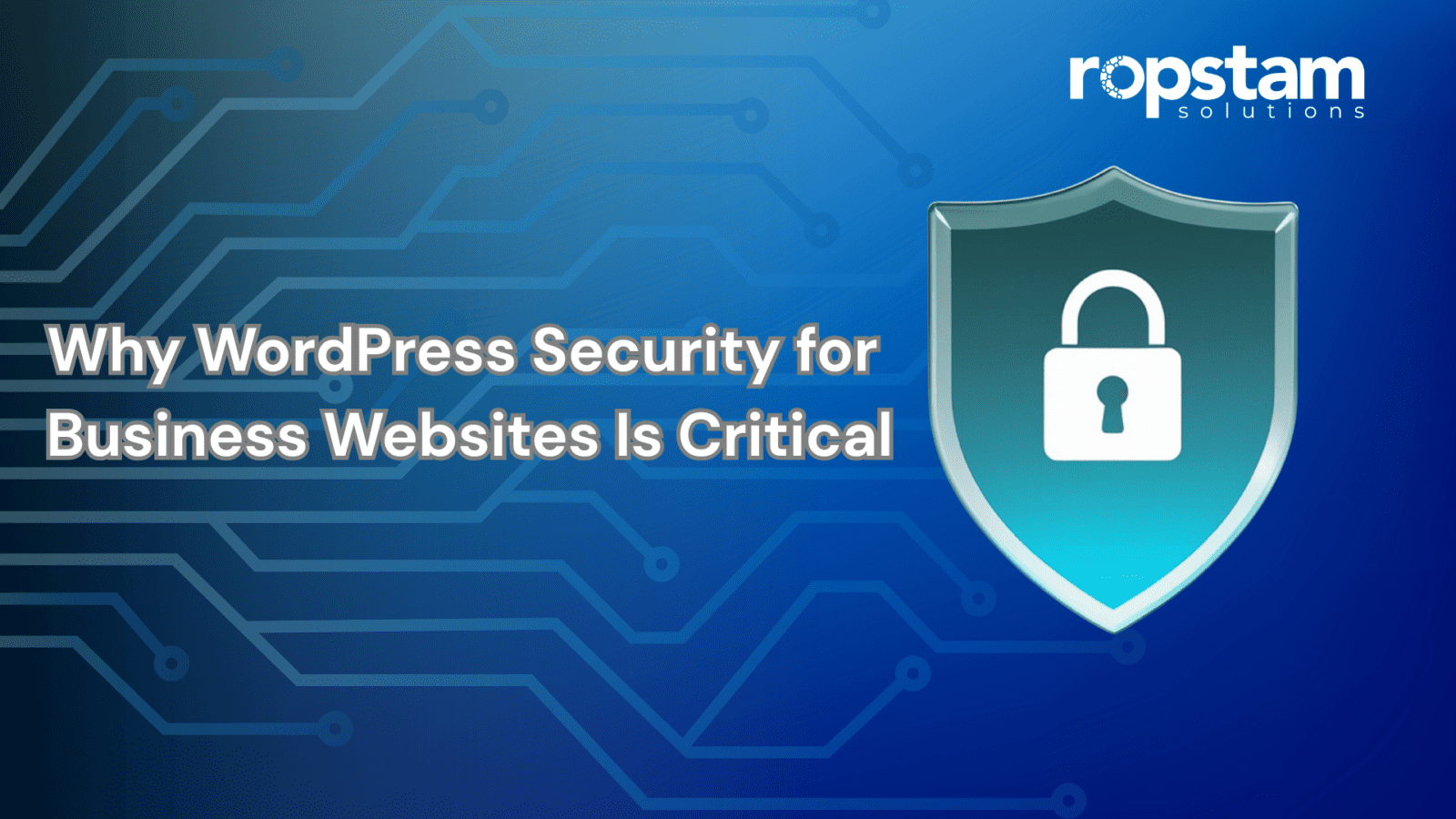In today’s digital-first economy, businesses are only as strong as their web applications. From e-commerce platforms and online banking portals to healthcare systems and SaaS tools, web apps have become the backbone of modern operations. They power transactions, manage sensitive data, and connect organizations with their customers in real time. Simply put, web applications are no longer optional—they are essential to how businesses grow, compete, and survive.
Yet with this convenience comes an ever-growing challenge: cyberattacks. Hackers are constantly searching for vulnerabilities to exploit, and even a single breach can lead to devastating consequences. The impact extends far beyond financial loss. A compromised application can damage your reputation, trigger costly legal penalties, and cause customers to lose trust in your brand—sometimes permanently. In fact, studies show that the average cost of a data breach now runs into millions of dollars, a risk most businesses cannot afford to ignore.
The good news is that these threats are not unbeatable. By adopting strong web application security practices, businesses can protect themselves and their customers. Whether you are a fast-growing startup or an established enterprise, prioritizing security is not optional—it is a critical step for long-term survival and success.
Why Web App Security Matters More Than Ever
Think about this: almost every customer interaction today involves a web app. People sign in, share personal details, make payments, and expect everything to work seamlessly and securely. Yet hackers are always on the lookout for vulnerabilities to exploit.
A report by IBM found that the average cost of a data breach in 2024 was $4.45 million—a staggering figure that most businesses cannot afford to risk. Beyond financial loss, breaches result in:
- Customer distrust – Users are hesitant to share their data again.
- Regulatory penalties – Non-compliance with GDPR, HIPAA, or PCI DSS leads to heavy fines.
- Operational downtime – Breaches often disrupt services, costing businesses valuable time.
Clearly, investing in web app security is not just a technical decision—it’s a business strategy.
Common Security Threats Web Apps Face
Before diving into solutions, let’s first understand the threats businesses need to protect against:
- SQL Injection (SQLi) – Attackers exploit input fields to manipulate databases and steal sensitive data.
- Cross-Site Scripting (XSS) – Malicious scripts injected into web pages steal user credentials or session data.
- Cross-Site Request Forgery (CSRF) – Hackers trick users into performing unwanted actions, like changing passwords.
- Broken Authentication – Weak login systems allow unauthorized access.
- Sensitive Data Exposure – Inadequate encryption leads to leaks of personal and financial information.
- Distributed Denial-of-Service (DDoS) – Overwhelms servers, making apps unusable.
Awareness of these threats is the first step toward defense.
Best Practices for Web App Security
Now, let’s explore the practical steps businesses can take to safeguard their applications.
Secure Authentication and Authorization
- Enforce strong passwords with complexity requirements.
- Implement Multi-Factor Authentication (MFA) to reduce the risk of stolen credentials.
- Use role-based access control (RBAC) so users only access what’s necessary for their role.
Pro tip: Never store passwords in plain text. Always hash and salt them.
Use HTTPS Everywhere
HTTPS encrypts data between the client and server, making it harder for attackers to intercept sensitive information. Businesses should:
- Install SSL/TLS certificates.
- Redirect all HTTP traffic to HTTPS.
- Regularly renew and update certificates.
Protect Against Injection Attacks
To prevent SQL injection and similar attacks:
- Use prepared statements and parameterized queries instead of dynamic SQL.
- Validate and sanitize all user inputs.
- Deploy Web Application Firewalls (WAFs) to filter malicious traffic.
Secure Session Management
Sessions are how web apps keep users logged in. Poor session management can be exploited. Best practices include:
- Use secure, randomly generated session IDs.
- Set session timeouts and automatic logout for inactive users.
- Always use cookies with Secure and HttpOnly flags.
Encrypt Sensitive Data
Data encryption is vital both in transit and at rest.
- Use AES-256 for data storage.
- Encrypt all communication with TLS.
- Avoid hardcoding encryption keys—store them securely using key management systems.
Regular Security Testing
Security isn’t a one-time setup. Continuous testing is crucial:
- Conduct penetration testing to simulate attacks.
- Use static and dynamic code analysis tools to detect vulnerabilities.
- Regularly scan for outdated dependencies and patch them quickly.
Implement Rate Limiting and Throttling
Prevent brute-force attacks and API abuse by:
- Limiting the number of login attempts.
- Adding CAPTCHA for suspicious activity.
- Applying rate limits on APIs to stop overuse.
Keep Software and Dependencies Updated
Many attacks target outdated software and libraries. Businesses should:
- Regularly update frameworks (like Django, Laravel, React).
- Apply security patches as soon as they’re released.
- Use dependency management tools to track vulnerabilities.
Educate Your Team
Security is not just about technology—it’s about people. Train employees and developers to:
- Recognize phishing attempts.
- Follow secure coding practices.
- Report suspicious activities immediately.
A well-informed team is your first line of defense.
Compliance and Data Privacy Regulations
Every business must comply with relevant laws:
- GDPR (Europe) for data protection.
- HIPAA (USA) for healthcare apps.
- PCI DSS for payment processing.
Following these regulations ensures both compliance and stronger customer trust.
Real-World Examples of Security Gone Wrong
- Equifax (2017): A failure to patch software led to the exposure of 147 million records.
- Yahoo (2013–2014): Weak security practices led to breaches affecting 3 billion accounts.
- Capital One (2019): A misconfigured firewall exposed 100 million credit applications.
These incidents highlight that security lapses—no matter how small—can cause massive damage.
The Role of a Software Development Agency
Building secure web applications requires more than just technical knowledge—it requires a structured, proactive approach. A professional software development agency:
- Designs apps with security-first principles.
- Conducts regular audits and testing.
- Implements scalable security frameworks that grow with your business.
Partnering with experts ensures that your business doesn’t just meet today’s security needs but is also prepared for future threats.
Final Thoughts
Web application security is no longer an afterthought—it is a cornerstone of business success in the digital era. Every interaction, from logging in to completing a purchase, relies on a foundation of trust between the customer and the business. If that trust is compromised through a security breach, the damage is often far greater than financial—it strikes at the very heart of customer confidence and brand reputation.
Cyber threats continue to evolve daily, becoming more sophisticated and more complex to detect. This makes security a continuous process rather than a one-time implementation. By prioritizing proactive measures such as secure authentication, data encryption, regular vulnerability testing, and strict compliance with industry standards, businesses can drastically reduce their risk exposure. These practices are not only about protecting systems; they are about protecting people—the customers who rely on your application to be safe.
For startups and enterprises alike, a secure web application is more than just a technical achievement—it is a strategic advantage. Customers expect seamless performance, but above all, they expect safety. Delivering on that promise strengthens loyalty, builds credibility, and creates the foundation for sustainable growth. In today’s world, investing in web app security is investing in your future.











